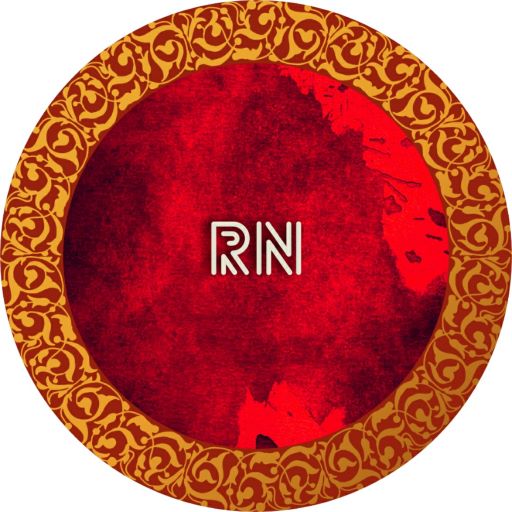| Discussions Forum | ||||||||||||||||||
Home  Forum Forum  Goods and Services Tax - GST Goods and Services Tax - GST  This This 
A Public Forum.
Submit new Issue / Query
My Issues
My Replies
|
||||||||||||||||||
Sale of part of Imported Goods in Trnasit, Goods and Services Tax - GST |
||||||||||||||||||
|
||||||||||||||||||
Sale of part of Imported Goods in Trnasit |
||||||||||||||||||
We are registered at Rajasthan. We are importing goods at Nava Shera, Mumbai. It is a container load (10000Kgs). We are taking delivery at Nava Shera and goods are dispatched to Rajasthan. During transit, part of goods are sold and offloaded (3000Kgs) at Mumbai and rest goods (7000Kgs) comes to Rajasthan. For goods sold in Mumbai, we prepare an invoice from Rajasthan charging IGST. For remaining goods, we are preparing a delivery challan from Nava Shera to Rajasthan. In light of above, please let us know :
Posts / Replies Showing Replies 1 to 9 of 9 Records Page: 1
Dear Once the goods are cleared from the Customs Authorities after payment of Customs Duty and IGST, they do not remain as "imported goods". Rather they are domestic goods like any other goods. So you can sell such goods to anyone on par with domestic goods as per the provisions of the GST Act, particularly Tax Invoice and E-way bill to be taken care of with caution to avoid trouble in transit.
I concur with the views of Sh. Sadanand Bulbule, Sir. As per Section 2 (25) of the Customs Act, "imported goods" means any goods brought into India from a place outside India but does not include goods which have been cleared for home consumption; Although in common parlance we call such goods as "imported goods ' yet these are no longer, "imported goods" after clearance from the Customs Station.
Under Goods and Services Tax (GST) Laws in India, the sale of goods in transit after clearance from the customs port is a scenario that involves both the Customs Act, 1962 and the GST Act, 2017. The primary concern in such situations is to determine when the supply of goods occurs and when GST becomes applicable, as the goods have already passed customs clearance. Provisions under GST Laws for Sale of Goods in Transit:
Conclusion:The sale of goods in transit after customs clearance is treated under GST laws as a supply of goods, with IGST applicable in inter-state transactions and CGST/SGST for intra-state transactions. The timing of the supply depends on the issuance of the invoice or the movement of goods, and the place of supply is determined by the destination of the goods. Key points:
I agree with the views of Shri.Sadanand Bulbule ji.
Sir With due respect, For better clarity please through some light on the following questions:- 1) After import can we move material in 2 parts without having a registration in Maharashtra 2) If yes, will there be any trouble during transit of 7000kgs being taken to Rajasthan on cover of inward delivery challan and corresponding e-way bill for 7000kgs Thanks in advance
In my view there won't be any issues if you are a GST regitrant
According to section 31(1) of CGST Act 2017, A registered person supplying taxable goods shall issue a tax invoice, before or at the time of removal of goods for supply to the recipient, where the supply involves movement of goods. Further as per rule 55(1) of CGST rules 2017, delivery challan can be issued in case of inter alia transportation of goods for reasons other than by way of supply. As per section 10(1)(a) of IGST Act 2017, POS of goods in case of supply involving movement of goods shall be place where movement of goods terminates. As per section 7 of IGST Act 2017, where the location of the supplier and the POS are in two different states then this shall be treated as a supply of goods in the course of inter-State trade or commerce. According to section 2(25) of the Customs Act 1962, "imported goods" means any goods brought into India from a place outside India but does not include goods which have been cleared for home consumption. Further as per section 12(1) of Customs Act 1962, customs duties shall be levied on goods imported into, or exported from, India. Query 1:- As per section 31(1) of CGST registered person registered in Rajasthan needs to issue a tax invoice for the supply of goods (3000Kgs) at Mumbai for which POS will be the Mumbai (as per section 10(1)(a) of IGST) and will results in inter-State supply of goods (as per section 7 of IGST) for which IGST shall be charged. Further for the remaining goods (7000Kgs) transporting from Nava Shera to Rajasthan delivery challan needs to be issued (as per rule 55(1) of CGST rules) Therefore the process adopted in the given case is correct and is according to the provisions of the GST law. Query 2:- In the given case goods (10000Kgs) are cleared from the port therefore it will not qualify as imported goods (as per section 2(25) of the Customs Act) and since customs duties are levied only on goods imported into, or exported from, India therefore customs duties will not be levied once goods cleared from port for home consumption. Since there is no relation of the Customs Act in the given case after goods has been cleared and also there is no restriction for selling goods in transit in GST laws and its rules, therefore goods once cleared from port for home consumption can be sold in transit.
Yash jee Thanks for a very comprehensive reply, I appreciate it. The only issue is, the verification of the Vehicle in Transit, Four states are involved in Transit and officers on the Road do not want to understand the part shipment and also the charging of CGST on the Inward Delivery challan. They only have one aim, how to find fault. A very sad state for TP.
Thats the sad state of affairs w.r.t. the officers on the road checking EWB compliances. Though, its clear that you can divert the goods from Mumbai without having any registration there and move the rest on DC. Ensure you have a copy of the BoE and the invoice issued for the sale / transfer made at Mumbai to show to the officer in case of the movement from Mumbai to Rajasthan. Page: 1 |
||||||||||||||||||
 9911796707
9911796707
.jpg)



